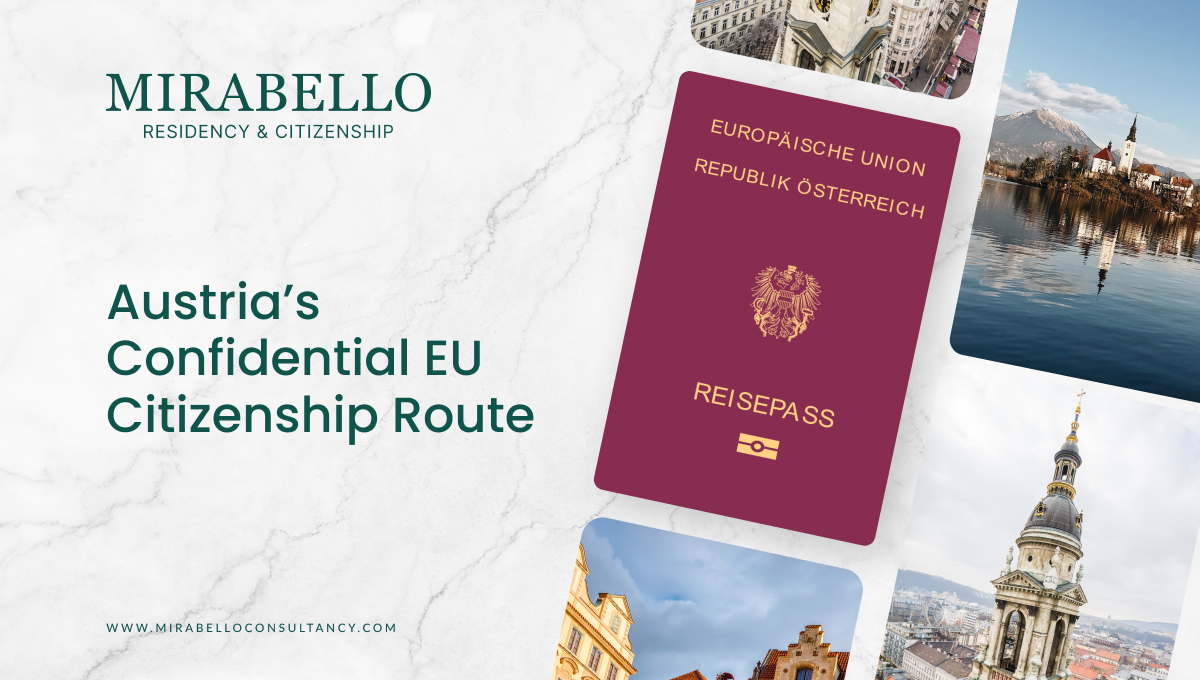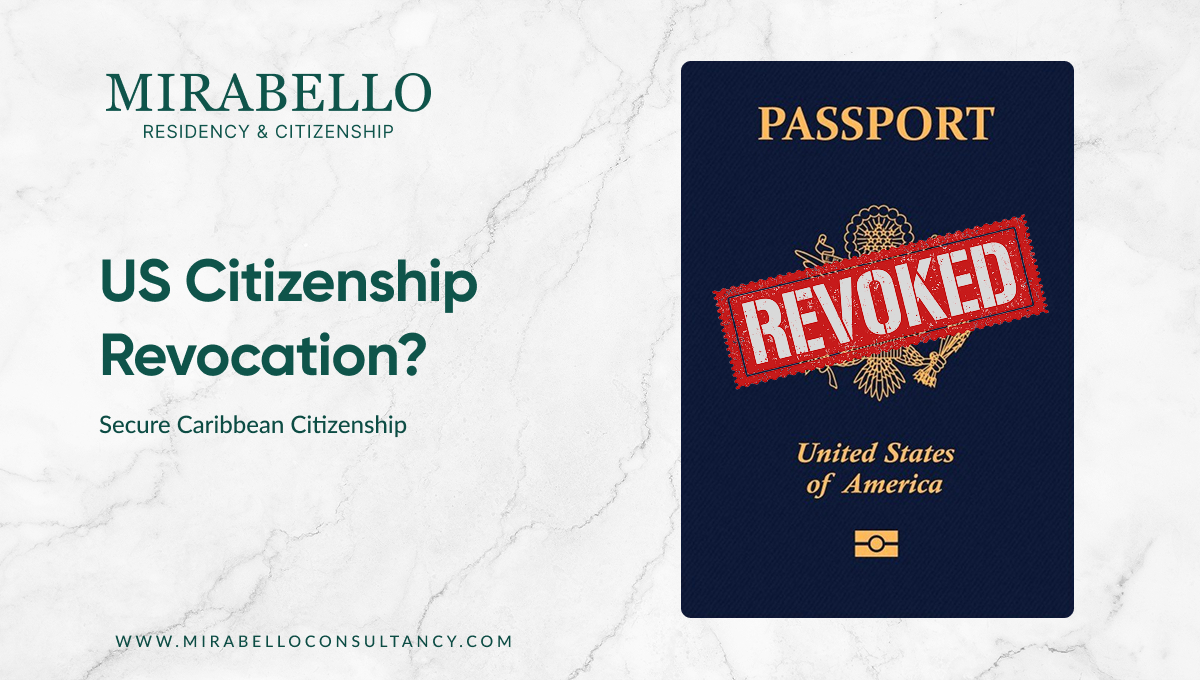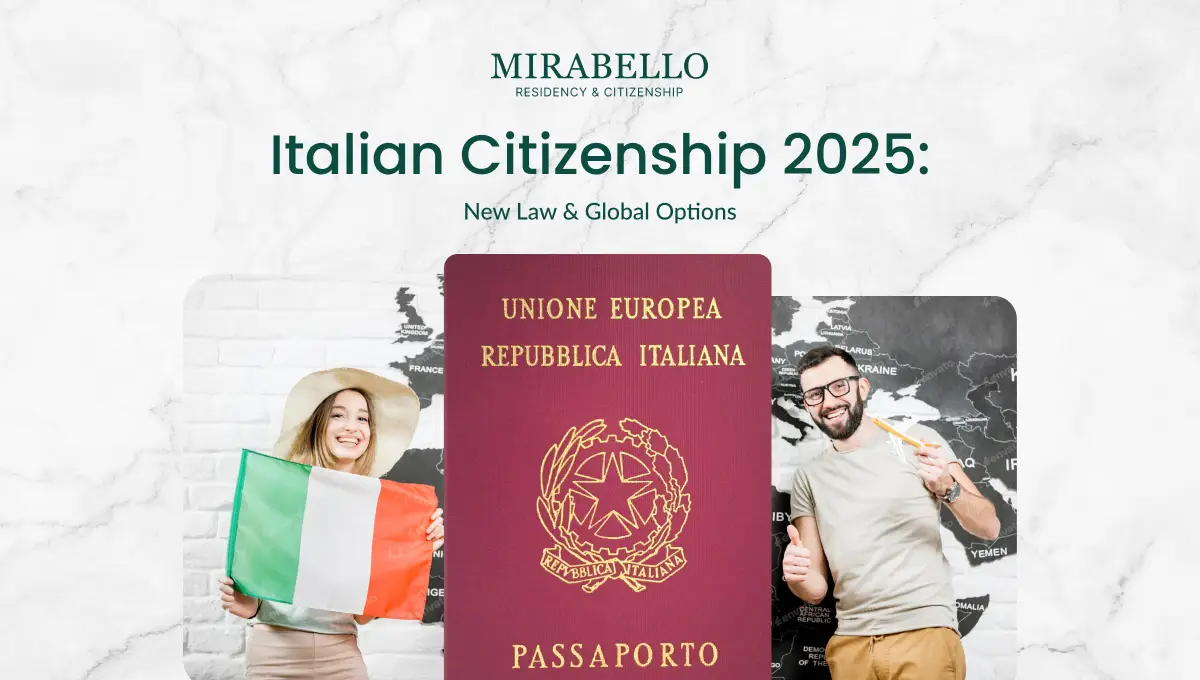
In today’s globalized world, understanding how to get a second passport can open doors to new opportunities, from increased mobility to financial security and lifestyle benefits. Whether for business expansion, wealth diversification, or securing a better future for your family, dual citizenship is becoming an essential asset for global citizens. Many countries offer different pathways to obtaining a second passport, including citizenship by descent, marriage, naturalization, and investment programs.
This guide explores the benefits of dual citizenship, the easiest countries to acquire one, and the various programs available. With the right approach and careful planning, securing a second passport can be a strategic step toward greater freedom and stability.
- How to Get a Second Passport: There are multiple pathways to obtaining a second passport, including citizenship by descent, marriage, naturalization, investment, special contributions, and asylum.
- Wealth Diversification & Tax Benefits: Holding dual citizenship allows individuals to diversify assets across different jurisdictions and potentially benefit from favorable tax policies.
- Easiest Countries to Obtain Citizenship: Countries like Grenada, Malta, Portugal, Australia, and Ireland offer some of the quickest and most accessible citizenship programs.
- Investment-Based Citizenship: Some nations provide fast-track citizenship in exchange for financial investment, including real estate purchases, business contributions, or government bonds.
6 Reasons to Obtain a Second Passport
Having a second passport is more than just a convenience—it’s a strategic advantage. Whether for business expansion, financial security, or personal well-being, dual citizenship opens doors to new opportunities and greater freedom. Below are six key reasons why obtaining a second passport can be a life-changing decision.
1. More Mobility
A second passport grants visa-free or expedited access to a wider range of countries, eliminating the bureaucratic hurdles that often accompany international travel. This is particularly beneficial for business professionals, digital nomads, and frequent travelers who need seamless entry into global markets. With a second passport, individuals can avoid restrictive visa processes, long wait times and sudden policy changes that could impact their ability to travel. This enhanced mobility is crucial for those whose work or lifestyle demands frequent international travel.
2. Diversification of Wealth
Second citizenship provides a powerful tool for safeguarding wealth by diversifying assets across different jurisdictions. Economic downturns, currency fluctuations, or political instability in one country can pose risks to an investor’s financial security. Individuals can better protect their assets and create a more resilient financial portfolio by holding bank accounts, real estate, or investments in multiple countries. Some nations also offer stronger banking privacy laws, making them attractive destinations for wealth management.
3. Tax Optimization
Many high-net-worth individuals look to a second citizenship as a means of optimizing their tax strategy. Different countries offer various tax benefits, such as lower personal income tax rates, no capital gains tax, or favorable conditions for estate planning. Strategic citizenship planning can legally minimize tax liabilities and create more favorable conditions for estate planning. However, it’s essential to understand each country’s tax regulations and whether dual taxation treaties exist to avoid unexpected obligations.
4. Education And Healthcare
Quality of life considerations often play a significant role in the decision to pursue a second citizenship. With access to world-class healthcare systems and educational institutions, a second passport can provide your family with the best possible standards of living. Parents seeking the best opportunities for their children’s future often prioritize citizenship in nations that offer subsidized or free access to top-tier education. Similarly, access to high-quality healthcare can provide peace of mind and long-term security for families. Many countries with citizenship-by-investment programs boast globally ranked universities, advanced medical facilities, and a high standard of living.
5. Culture And Lifestyle
Beyond financial and strategic benefits, dual citizenship enriches personal and professional life by allowing individuals to experience diverse cultures, climates, and ways of living. Whether it’s the relaxed coastal lifestyle of the Caribbean, the bustling innovation hubs of Europe, or the historic charm of Mediterranean cities, a second passport grants the freedom to choose where to live, work, or retire. It also enables individuals to integrate into different communities, learn new languages, and embrace new traditions.
6. Legacy Planning
For those looking to secure their family’s future, second citizenship can be an invaluable legacy. Some countries grant citizenship to individuals born within their borders, a policy known as jus soli (right of the soil). While this is not a direct path to acquiring citizenship later in life, it is an important consideration for those planning for future generations. Having a second passport can provide children and grandchildren with better education, career prospects, and the ability to relocate to more stable or economically prosperous nations.
Final Thoughts
Acquiring a second passport is a strategic decision that offers financial, personal, and professional benefits. Whether for increased mobility, asset protection, tax efficiency, or securing a better future for your family, dual citizenship is a powerful tool in an increasingly globalized world. However, before choosing a country for second citizenship, it is crucial to consider factors such as residency requirements, tax implications, and long-term stability.
6 Ways to Get a Second Passport for Another Country
In a world where mobility, security, and financial stability are increasingly valued, acquiring a second passport has become an attractive option for many individuals. Governments worldwide have implemented various citizenship programs to attract investors, skilled professionals, and others who can contribute to their economies. Whether through ancestry, marriage, investment, or other means, obtaining a second passport can open doors to new opportunities and global freedom. Below are six primary ways to obtain citizenship in another country.
1. Citizenship by descent
One of the easiest and most cost-effective ways to obtain a second passport is through citizenship by descent. Many countries grant citizenship to individuals who can prove that their parents, grandparents, or sometimes even great-grandparents were born there.
The process typically requires providing official documents such as birth certificates, marriage records, and legal proof of lineage. Countries such as Ireland, Italy, and Poland have well-established ancestry-based citizenship programs, allowing descendants of their nationals to reclaim their heritage and obtain citizenship without long residency requirements.
This option is particularly appealing for those with European or Latin American ancestry, as it can provide access to the European Union or Mercosur, enhancing global mobility and business opportunities.
2. Citizenship by marriage
Many countries offer a pathway to citizenship for foreign spouses, though the process varies in length and complexity. Generally, a foreign national must first obtain residency through marriage and maintain the union for a certain period before applying for citizenship.
Some countries, like Brazil and Argentina, have relatively short waiting periods (as little as one to three years), while others, like the United States or Canada, may require a longer period of residency and additional naturalization steps.
To prevent fraudulent marriages, many nations impose strict requirements, such as demonstrating a genuine relationship, living together for a specified period, and sometimes passing language or civic knowledge tests. This method is ideal for those who genuinely plan to build a life with a citizen of another country.
3. Citizenship by Naturalization
Naturalization is one of the most common ways to acquire a second passport and involves residing legally in a country for a specified period before becoming eligible for citizenship.
Each country has different naturalization requirements, but common factors include:
- A minimum period of residency (often ranging from five to ten years).
- Demonstration of integration into society, such as language proficiency and cultural knowledge.
- No significant criminal record or history of immigration violations.
For example, Canada requires applicants to live in the country for at least 1,095 days (three years) within a five-year period, pass a citizenship test, and demonstrate proficiency in English or French. In contrast, countries like Portugal offer a relatively straightforward path to citizenship after five years of residency, with no strict physical presence requirement.
4. Citizenship by investment
For high-net-worth individuals, citizenship by investment (CBI) is a fast-track option that grants citizenship in exchange for a significant financial contribution to the country. This often includes:
- Purchasing real estate.
- Investing in government bonds.
- Making a direct contribution to a national development fund.
Countries such as Saint Kitts and Nevis, Malta, and Dominica offer well-established citizenship-by-investment programs, allowing applicants to secure a passport in as little as six months without meeting residency requirements.
The benefits of this route include enhanced travel freedom, tax advantages, and access to stable financial systems. However, these programs can be costly, with investment thresholds typically ranging from $100,000 to over $2 million, depending on the country.
5. Special merits and contributions
Some nations grant citizenship to individuals who have made exceptional contributions to the country in areas such as:
- Science and technology.
- Sports and athletics.
- Arts and culture.
- Humanitarian efforts or diplomacy.
This type of citizenship is often granted on a case-by-case basis and typically requires approval from high-ranking government officials or the head of state. For example, Portugal has granted citizenship to international football stars, and Russia has done the same for athletes and cultural icons.
While not a guaranteed path, this method can be a possibility for those with unique skills or global recognition.
6. Citizenship through asylum
In some cases, individuals fleeing their home countries due to persecution, war, or humanitarian crises may be granted asylum or refugee status in another country. Over time, this can lead to permanent residency and, eventually, citizenship.
This path is highly regulated and often requires applicants to prove that they face significant danger in their home country. Countries like Canada, Germany, and Sweden have strong asylum programs that provide long-term protection and a pathway to citizenship after several years of residency and integration.
However, the process can be lengthy and complex, with strict eligibility criteria and government oversight to prevent abuse of the system.
10 Easiest Countries To Get Dual Citizenship
Dual citizenship provides greater global mobility, financial security, and access to new opportunities. Many countries offer straightforward paths to obtaining a second passport, whether through ancestry, investment, naturalization, or special programs. Below are ten of the easiest countries to acquire dual citizenship, along with their key requirements and benefits:
1. Grenada
Grenada is one of the most accessible countries for obtaining citizenship through investment. The process is swift, taking as little as three months, and there is no requirement for physical residency or an interview.
Ways to Obtain Citizenship:
- Donation Route: A minimum non-refundable contribution of $150,000 to the country’s National Transformation Fund.
- Investment Route: A minimum investment of $220,000 in approved real estate projects.
Key Benefits:
- Visa-free travel to over 140 countries, including the UK and Schengen Zone.
- Access to the U.S. E-2 Visa, allowing investors to live and work in the U.S.
- No income, inheritance, or wealth taxes.
Whether you seek to expand your global mobility, unlock new business opportunities, safeguard your wealth, or secure a better future for your family, dual citizenship offers a wide range of advantages. A second passport is more than just a travel document—it is a gateway to financial security, political stability, and access to global markets.
As you explore your options – be it through descent, investment, or other routes – it’s important to note that each comes with unique considerations and requirements before you can become a citizen, check with professionals like Mirabello Consultancy before you make a decision!
FAQ
If you opt for citizenship by investment, getting a second passport is fairly easy and can take as quick as three months.
There’s no standard rule for how countries grant citizenship. There are also few, if any, countries where marrying a citizen confers citizenship. In most cases you are entitled to live and work in your spouse’s country, but still have to go through the process of applying for citizenship if that’s even a possibility.
Yes, you are eligible for potential tax obligations for both countries that you have citizenship for. This could be foreign income tax, residency tax if you own property in either country, or other situations where tax is payable.
Some countries have tax treaties that eliminate a citizen’s tax liability, meaning that the citizen will only have to pay taxes in one country.
The United States does allow dual citizenship, provided individuals adhere to specific procedures outlined by the USCIS.
Vanuatu is the fastest country to obtain citizenship, with its citizenship program. The process can be completed in as little as one month.
The difficulty of obtaining dual citizenship depends on the method you choose. If you apply through citizenship by investment (CBI) programs, the process can be fairly straightforward and fast, with some countries granting citizenship in as little as three months.
Other pathways, such as naturalization, descent, or marriage, often require a longer commitment, including residency requirements and legal processes that can take several years. The easiest way to acquire dual citizenship is through CBI programs in countries like St. Kitts & Nevis, Dominica, or Grenada, which offer streamlined application processes with minimal residency obligations.
Marriage to a person with dual citizenship does not automatically grant you dual citizenship. The process varies depending on the laws of the country your spouse is from.
- In many countries, marriage to a citizen may allow you to apply for permanent residency first, followed by naturalization after a certain number of years.
- Some countries, like Italy, Spain, and Portugal, offer faster pathways to citizenship through marriage, but you still need to apply and meet residency or language requirements.
- Very few countries grant instant citizenship through marriage. Even in cases where marriage simplifies the process, it usually requires fulfilling additional legal and residency obligations.
If you are considering dual citizenship through marriage, it’s essential to research the specific laws of your spouse’s country.
Yes, dual citizens may have tax obligations in both countries, but the specifics depend on each country’s tax laws and any tax treaties in place.
- Some countries tax based on residency, meaning you only pay taxes if you live there.
- Others, like the United States, impose citizenship-based taxation, meaning U.S. citizens must file taxes annually regardless of where they live.
- Many countries have double taxation treaties, which prevent dual citizens from being taxed twice on the same income. These treaties allow you to offset taxes paid in one country against liabilities in another.
If you are a dual citizen, it’s crucial to consult with a tax professional to ensure compliance and take advantage of any tax treaties available.
The United States allows dual citizenship, but it does not formally encourage it.
- The U.S. government does not require citizens to renounce their American citizenship when obtaining another nationality.
- However, U.S. citizens must adhere to federal laws, including tax obligations and military service requirements (if applicable).
- When applying for foreign citizenship, it’s essential to ensure that the second country also allows dual citizenship—some nations require renunciation of previous nationalities before granting citizenship.
For those considering second citizenship, understanding U.S. laws on dual nationality, taxation, and potential travel restrictions is important.
The fastest country to obtain citizenship is Vanuatu, which offers citizenship by investment in as little as one month.
Other fast-track options include:
- St. Kitts & Nevis – Citizenship can be obtained in three to six months through investment.
- Dominica & Grenada – The process takes approximately three to four months.
- Malta – Offers citizenship in one year under its investment program.
These fast-track programs require financial investment in real estate, government funds, or business ventures and typically have minimal or no residency requirements.
If speed is your priority, a citizenship by investment program in a country like Vanuatu or St. Kitts & Nevis is the most efficient and straightforward route.





